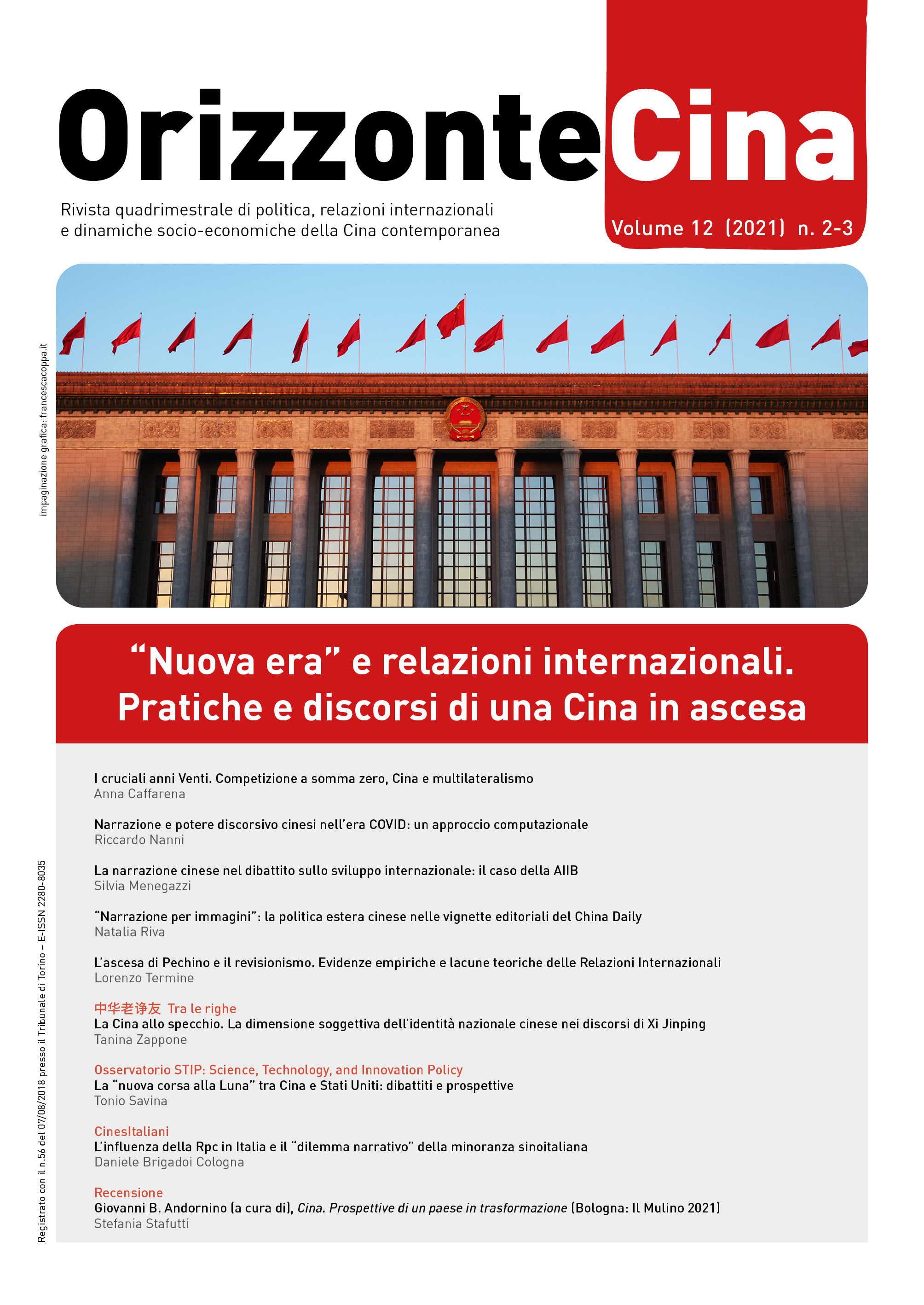Vol. 12 No. 2-3 (2021): "New era" and international relations. Practices and discourses of a rising China

In the "New Era" of China, the search for adequate international status is an essential component of the processes of domestic political legitimacy. "Stood Up" (zhànqǐlai 站起来) in the era of Mao Zedong and "gotten rich" (fùqǐlai 富起来) in the era of Deng Xiaoping, Xi Jinping's China now aspires to internationally "get strong" (qiángqǐlai 强起来), thereby bringing to final fulfillment the "great rejuvenation of the Chinese nation" (Zhōnghuá mínzú wěidà fùxīng 中华民族伟大复兴) promised by the Communist Party. Today, the objective seems closer than ever, in an international context which - in the eyes of the Chinese leadership - is not only characterized by the prolongation of a "period of strategic opportunity" (zhànlüè jīyù qī 战略机遇期), but also by the manifestation of "unprecedented changes in a century" (bǎinián wèiyǒu zhī dabiàn jú 百年未有之大变局) such as to prefigure "the rise of the East and the decline of the West" (dōngshēng xījiàng 东升西降).
In this context, China's foreign policy action is characterized by an unprecedented ambition that seems to have now definitively dismissed - both in terms of practices and in terms of discourse - the "keeping a low profile and biding one’s time" (tāoguāng yǎnghuì 韬光养晦) of the old era. A line of greater intransigence can be seen in the practices and speeches of Beijing within the perimeter of its periphery, particularly with regard to territorial disputes as well as the ongoing Taiwan issue. At the same time, this unprecedented ambition characterizes China's projection beyond the traditional regional horizon. Thus, to the growing pressure exerted by the United States since the Obama administration, Beijing responds by articulating its own vision of the international order and claiming its own "discourse power" (huàyǔquán 话语权) in the global public space. In this sense, the Belt & Road Initiative (BRI) represents only the most visible manifestation of a more generalized China activism, aimed at shaping, adapting, or challenging norms, rules, and institutions of the liberal international order as well as globalized at the end of the Cold War.

